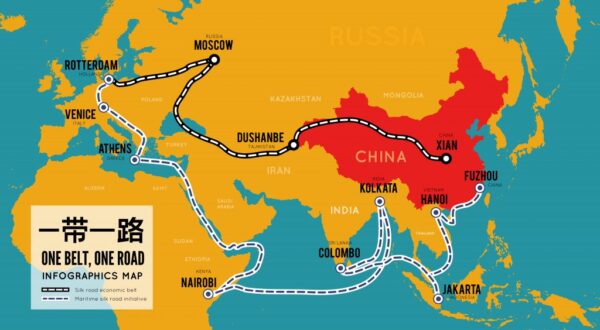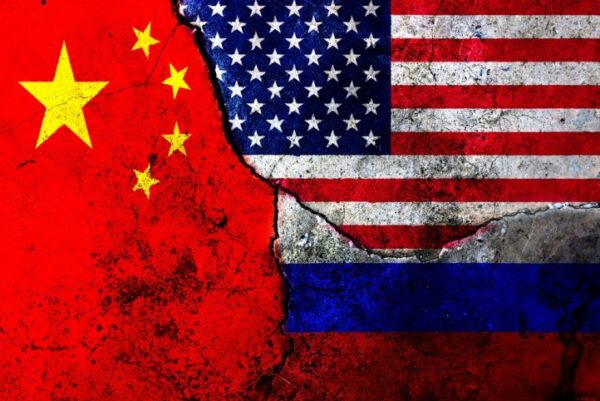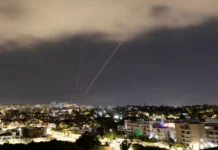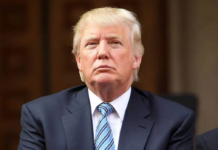What Next?
Sonja Grusch, SLP (ISA in Austria)
This article is based on an introductory speech given by Sonja Grusch, a member of the ISA International Executive, at the ISA Virtual Marxist University in July 2020.
The background to the discussion and to the period we are in is the deep structural crisis of capitalism, that is the world recession, triggered and accelerated but not produced by Covid-19 (Coronavirus).
Basics & Clarifications
I want to start with some basics and clarifications on imperialism and comparisons between the Cold War of the 20th century and today’s intra-imperialist conflicts
Regarding imperialism, let us recall five of its central characteristics as defined by Lenin in chapter seven of his book Imperialism, the Highest Stage of Capitalism:
(1) the concentration of production and capital has developed to such a high stage that it has created monopolies which play a decisive role in economic life;
(2) the merging of bank capital with industrial capital, and the creation, on the basis of this “finance capital”, of a financial oligarchy;
(3) the export of capital as distinguished from the export of commodities acquires exceptional importance;
(4) the formation of international monopolist capitalist associations which share the world among themselves, and
(5) the territorial division of the whole world among the biggest capitalist powers is completed.
This repetition is important, because, unlike reformists or others on the left, we take the economic part of imperialism into account and do not reduce imperialism to the military part. Such a well-balanced analysis of imperialism is important in order to understand geo-political processes as well as to create a correct program in relation to wars and conflicts.
When comparing the Cold War between the US and the Soviet Union during the 20th century to today’s conflicts, one can identify some similarities as well as important differences. No comparison fits perfectly, but we do it to point to similarities.
Perhaps the largest similarity is that, in the same way as today today, most intra-imperialist wars are not fought on a military but on an economic and trade level (e.g. the trade war between US and China or the various intra-EU conflicts); when open conflicts, “hot” wars, do happen, they happen predominantly as proxy wars, such as those in Yemen, Syria and other parts of the world.
A key difference on the other hand, is the fact that today’s largest cold war is between two imperialist powers, China and the US, while the Soviet Union was not an imperialist or even a capitalist country. In the World Perspectives document from the International Socialist Alternative congress in January this year, we write “the analogy with the historical Cold War between US imperialism and Stalinism should serve to better clarify what’s fundamentally different in today’s process: It is not a conflict between mutually exclusive social systems. This has important repercussions on the dynamic and perspectives of this process, as well as on program.”
Another difference worth mentioning is that in today’s conflicts, the different blocs are not as clear cut as they were during the Cold War of the 20th century. Back then the main conflict was between two blocs, which mostly had “their” allies under control. Today on the other hand, besides the two main powers, China and the US, there are also other imperialist nations, which have partially conflicting interests in their regions, but also on an international level. Notwithstanding this more “messy” character of today’s intra-imperialist conflicts, we do also see a development towards more clearly separated blocs.
Back in 1991, George Bush Sr. declared the “New World Order”. After the collapse of the Stalinist states, it looked for a while as if the US would be the only world superpower and could do whatever they wanted.
China — USA
Today, the main conflict is between the two economic and military superpowers China and the US. It has featured trade conflicts, but also new trade deals which have been signed between the two.. Generally one can say that the different trade conflicts have increasingly escalated during the last period. US Secretary of State Mike Pompeo has not only declared the Chinese Communist Party to be the number one threat to security, he also announced more US military operations to push back Chinese maritime activity in the South China Sea.
The fundamental conflict is about who is the number one superpower, particularly in a shrinking world economy. The recent economic figures of China probably increased the nervousness of Trump and the US-capitalists even further.
While the US has most likely not yet reached the peak of its coronavirus outbreak, China’s economy seems to be growing again, although the figures are undoubtedly exaggerated by the regime. In June for example, Chinese exports have increased compared to June 2019 — while the US is afraid of further lockdowns!
However, the conflict is not only about the redistribution of markets and resources, it is also about strategic positioning within the broader geopolitical sphere; or, as Lenin put it, “an essential feature of imperialism is the rivalry between several great powers in the striving for hegemony, i.e., for the conquest of territory, not so much directly for themselves as to weaken the adversary and undermine his hegemony.”

An important pillar of China’s geopolitics is the Belt and Road Initiative (BRI), also known as “One Belt, One Road”, which was announced in 2013 by president Xi Jinping. Since its start, it has contributed to increasing China’s influence in large parts of the world. The BRI involves 138 countries, and also Italy and Greece have joined in. In Latin America 14 out of 20 countries are part of the BRI, in Africa 40 out of 55. This includes military presence — China is already the second biggest arms dealer to Africa and increases its physical presence through UN missions as well.
This process is deeply worrying for the other imperialist powers, especially for the US.
Closing ranks
At the moment it seems that many imperialist countries, and the US in particular, are trying to combine unilateralism, and an increased concentration on domestic politics and their respective national economies, with the attempt to close ranks with other imperialist powers against China.
A “us vs. them” approach is difficult for countries such as Australia or India, both of whom have close economic ties with China, while they are leaning increasingly towards the US in the political and military field.
The tendency towards clearer blocs is reflected in the recent clashes at the Sino-Indian border in the Himalayan region. The dispute has been looming for a while; both sides have been building infrastructure projects at the “Line of Actual Control”, which serve primarily military purposes. The larger context is that both India and China are trying to increase their influence in the region.
This is important to note, as some might look for support from the Chinese or the Indian regime when arguing for the right of self-determination of small nations such as Bhutan, Kashmir or Tibet. However, the rights of these nationalities are nothing but chess pieces in the geopolitical games of the bigger powers.
Recently, China has ratcheted up their aggressive efforts to enter the Indian markets, which India has tried to prevent. In order to protect its markets, India is increasingly leaning towards the US. In competition with China, the Indian ruling class has strived to attract US manufacturing companies trying to benefit from the US-China economic decoupling.,which includes the reallocation of supply chains and financial investments.
Indian Prime Minister Modi supports Trump’s call for an “investigation” into China’s role with regard to the coronavirus crisis; India is, as a counterweight to China, of central importance for Trump’s Indo-Pacific strategy. With Pakistan, the situation in the region gets even more complicated, as the country is in conflict with the US and India, but in an economic alliance with China.
Unstable Alliances
Russia is another factor to take into account. Not only does the country, like India, share a border with China, but Russia is also a nuclear power and an important global player with its own interests. There are conflicts between Russia and the US in the Middle East around Syria and Iran, but also at the US doorstep around Venezuela, Cuba and Nicaragua.
Again, there are no fundamental ideological differences between Trump and Putin; on the contrary, both are reactionary nationalists. This parallel does not only exist between the US and Russia, however; in many of the large imperialist countries there are reactionary nationalists in power. This is also a reflection of the need of the respective national capital for a more protectionist course of “their” governments given the situation of the world economy.
Overall, we can see a trend towards an increasing development of power blocs, which also shows, for example, in the support of the Trump administration for the aggressive policy of the Netanyahu government.

At the same time, however, imperialist countries like Germany, Russia and others also have their own interests of course. This is reflected in the serious conflicts within the EU, such as the endless negotiations about different rescue packages, which have been going on for months.
Germany, as the strongest imperialist country in Europe, wants to maintain and further dominate the EU for its own interests, but all European countries — irrespective how strong their interests are in relation to the EU — have at the same time conflicting interests in relation to the alliances, economic deals and their influence on other countries and regions.
Germany has strong economic relations with China, the US and Russia, and tries to balance between those whilst pursuing its own interests in the Balkans and in Eastern Europe.
One can thus say, that although there is a trend towards more distinct power blocs, those very blocs are weakened, on the other hand, by conflicting interests within them. These internal conflicts will most likely become even more serious with the worsening of the economic crisis, and protectionism on various levels will be a major feature of the next period.
Or as we put it in the 2020 World Congress document: “While the historical Cold War kept more in check the inter-imperialist rivalries within the capitalist world (“first world”), this will not be the case this time, not least in an era where any imperialist alliance is drastically shaken and ruptured by growing centrifugal national pressures. Thus, in this “new cold war” between the two most powerful imperialist states, other imperialist rivalries — Russia, the European Union, India and Japan — have and will emerge at times “more independently” to re-assert their interests.”
These conflicts do not only reflect economic pressures, but also political ones. The ruling elites in Europe have been searching for a way to tax digital companies, firstly because there is public pressure in favor of it, and secondly, because more tax money is desperately needed to finance the anti-crisis measures. The negotiations around this issue have been stopped by the US.
The demands and constraints of capitalism, which influence and are manifested in the above described conflicting national interests, prevent important measures to fight the economic as well as the COVID-19 crisis. The ineffectiveness of capitalism became brutally apparent in relation to medical protection, medication and a possible vaccine against the coronavirus — borders were closed, masks and ventilation equipment stopped and individual countries and the EU tried to negotiate special deals with private pharmaceutical companies.
What will come?
All of those tensions and conflicts happen while the world is entering the deepest economic crisis in 100 years. At this moment, it is still unclear how the COVID-19 crisis will develop, how hard the first wave will affect South America and Africa, and if a second or even third wave will follow; the economic and social effects of all this will be unimaginable.
A second wave of layoffs is expected to hit around August and September. At the moment, already 25% of the people who are still employed in the OECD countries are paid through state subsidies, in some countries like France (55%) and Italy (45%) this proportion is even higher. Mass poverty increases dramatically. The UN estimates that up to 50% of all jobs in Africa could be lost due to the crisis, and the UN World Food program warns that the number of people facing acute food shortage will increase twofold, reaching 265 million by the end of 2020 (although there will still be enough food produced!)
An international solution
All of the global problems we are facing — the climate crisis, the COVID-19 crisis, the world economic crisis and the poverty crisis — cry out for an international solution. And the material means for such an international solution are actually there. For example, with regards to the question of food shortage and starvation; worldwide, one billion people work or are employed in the food production sector — if they were to organize and run the sector, nobody would have to starve.
Or, as Lenin put it: “Capitalism in its imperialist stage leads directly to the most comprehensive socialization of production; it, so to speak, drags the capitalists, against their will and consciousness, into some sort of a new social order, a transitional one from complete free competition to complete socialization.”
But while the necessary material and technological means exist for international planning to benefit humanity, the ruling classes are going in the opposite direction — they are retreating to the nation state and promoting nationalism.
A race between countries to re-open the national economy as early as possible is taking place, which reflects the fierce battles between the national economies. This openness with which the ruling classes are prepared to risk the lives of working class people has effects on people’s consciousness.
Institutions in crisis
The intra-imperialist tensions are also reflected in the crisis of its institutions: Trump pulls the US out of the WHO, the OSCE (Organization for Security and Co-operation in Europe) will be without an official leadership until at least the end of the year, the debate around the US withdrawing from the WTO is ongoing and the EU is in a deep crisis.
Lenin explained about the development of a financial oligarchy, having its very own interests and we can also see that at the moment: the deep debt crisis in Argentina led the IMF — known for its brutal SAPs (structural adjustment programs) — to pressurize private vulture funds to make concessions in order to prevent a collapse of Argentina, which would have devastating economical and political consequences.
The World Bank’s Annual Bank Conference on Development Economics is titled “Global Unrest”, which is a reflection of the rising fear of the ruling classes — and of the deep crisis of the capitalist system.
The institutional crisis of the capitalist system is linked to the increasing intra-imperialist tensions and the rise of nationalist politics. It is our task, therefore, to stress that these increasingly nationalist politics stand in stark contrast to the demands of ordinary working class people. We know that the electoral successes of nationalists like Putin, Trump or Bolsonaro are not simply a reflection of increased nationalism within the working class.
An opinion poll of the European Council on Foreign Relations (ECFR) shows two important things. Firstly, that a clear majority of the population is in favor of more intense cooperation in Europe as a result of the COVID-19 pandemic; in Portugal and Spain, for example, this is supported by 91% and 80%, respectively. And secondly, that the inability of the EU to provide strong leadership in the COVID-19 crisis is seen very critically. These results are indicators for an underlying internationalist consciousness amongst the working classes, which is especially strong within the younger generations.
This internationalist outlook can also be seen in the recent big social movements, such as the climate, the feminist and the Black Lives Matter movement, as well as in many of the social uprisings that expressed solidarity with the revolting masses in other countries, be it the Iraqi protesters who expressed their solidarity with the Iranian people or the French Yellow Vests who showed support for the struggle in Chile.
This internationalism stands in stark contrast to the increasing nationalism of the ruling elites and gives much hope for future struggles and anti-war movements. However, this can of course change; reactionary backlashes and defeats for social movements can endanger this internationalist tendency.
We must therefore try our very best to foster the internationalist mood and to bring people into our ranks, as internationalist organizations like ours and international struggles are the best weapon in the fight against nationalism.
Arms race
The institutional crisis is not the only result of the increasing intra-imperialist tensions, one can also see an escalating arms race between the large imperialist countries. According to the Stockholm International Peace Research Institute, global military expenditure sees its largest annual increase in a decade, reaching US$1917 billion in 2019.
By far the largest spender is the US: their military spending grew by 5.3% to a total of US$732 billion in 2019 and accounted for 38% of global military spending.
Behind the US, China and India were the second — and third-largest military spenders, respectively, in 2019. China’s military expenditure reached US$261 billion in 2019, a 5.1% increase compared with 2018, while India’s grew by 6.8% to US$71.1 billion. Russia was the fourth-largest military spender in the world and increased its military expenditure by 4.5% in 2019.
There were also sharp increases in military expenditure among NATO member states, especially in Central Europe. Germany’s military spending, for example, rose by 10% in 2019 to US$49.3 billion, which was the largest increase in spending among the top 15 military spenders in 2019, and the total military spending of all 29 NATO member states was US$1035 billion in 2019, and increase 11% from 2018 (US$931 billion). This development is not least a result of Trump pressuring the other NATO countries to increase their spending.
The escalating arms race is part of the consolidation of power blocs. Only recently, NATO Secretary General Stoltenberg made clear that “NATO is not only a military alliance but foremost a political one”. And already back in 2019, NATO defined China as a threat, as the western powers fear to lose their technological supremacy. So while NATO Secretary General Stoltenberg claims that NATO aims “to avoid an arms race”, the very opposite is the case.
In addition to the rising military spending, international military treaties are being dismantled. The US retreated this year from the 2002 Open Skies Treaty, which currently has 34 participating states and is supposed to increase transparency about military activities through unarmed aerial surveillance flights over the respective states’ territories. Moreover, in February 2021, the last of the big nuclear treaties with Russia, New START (Strategic Arms Reduction Treaty), will come to an end, and the US shows no interest in its renewal. Of course, Russia’s motivation to renew the treaty is not a sign for Putin’s love for peace, but a result of Russia’s economic difficulties and their already high military expenses, which account for 3.9% of Russia’s GDP.

The rising arms expenditures and the weakening of military treaties certainly both raise the danger of hot wars. And although a third world war is not an imminent threat and not a very likely future perspective either, military conflicts and proxy wars on a regional level certainly are. We also need to take into account the dynamic of processes that can get out of control!
In many regions, a long-lasting series of smaller clashes is more likely than one big war, for example in the Middle East with Israel-Palestine, Iran, Syria and Turkey. It is obvious that the saber-rattling between China and the US is intensifying — the latest US naval operations in the South China Sea are a manifestation of that. However, a direct military conflict between the two superpowers is still very unlikely.
Which side are we on
Protests and movements will form around wars and increasing militarization as well as around the question of democratic rights, which often comes to the fore during crisis and war situations, as those boost the most reactionary elements within the ruling classes. Many wars and military conflicts have led to a fast and far-reaching politicization of the masses — the Vietnam War and the invasion of Iraq in 2003 are good examples for such developments.
Of course, our work is quite different in the regions and countries that are directly involved in war situations, like Israel-Palestine or the US, and in those where there are large communities from war zones, like the Kurdish diaspora in Germany or refugee groups.
When the question of war becomes more prominent, we have to counter various forms of propaganda. “Defending the fatherland” is most likely an argument that our comrades in Israel-Palestine have to take up quite frequently. For the majority of sections, propaganda such as “defending democracy”, “Western values” or even “women’s rights” — this was Bush’s argument for bombing Afghanistan — is more likely.
Obviously we do not side with any of the involved imperialist countries. As Leon Trotsky wrote in 1939, “since war is waged by both imperialist camps not for the defense of the fatherland or democracy but for the redivision of the world and colonial enslavement, a socialist has no right to prefer one bandit camp to another.” Karl Liebknecht wrote in a Leaflet against World War I in 1915, “The Main Enemy Is At Home!” by which he meant the German government and military leadership.
Depending on the consciousness of working class people and the youth, we might not use this exact formulation, but we need to analyze the imperialist role of each respective government and break it down to concrete examples.
For example, a common slogan in Germany is “Deutsche Waffen, deutsches Geld, morden mit in aller Welt” (“German weapons, German money, are killing all over the world”). German weapon sales became a prominent political topic around the brutal austerity program of the EU Troika in Greece and other Southern European countries.
The working class
In the coming movements the question will be how to stop or prevent a war, and who has the power to achieve that? Many people will have hopes in the UN. But while we see a weakening of international institutions like the UN, as countries such as the US are pulling out, there is also the danger of creating illusions in those institutions. Many might think that if Trump hates them we need to defend them, especially as some of the more progressive elements of the ruling classes, as well as reformist organizations, try to defend these institutions and the role they play.
Precisely because of such tendencies, it is important to remember that the UN was not much more than an imperialist tool in the Korean War, the Balkan Wars and in other conflicts.
Thus, we need to point out that, while there might be honest people affiliated with these international institutions like Jean Ziegler, these organizations are ultimately instruments of imperialism, linked to and also jointly responsible for the economical and ecological exploitation of our world.
While we need to argue for the need of international cooperation and organizations, we need to do so from a working class perspective, and make clear that we need international organizations of, by and for the working class.
The working class is the class suffering most under the current system, but they are also the only force that can lead the fight for a truly peaceful world, by eliminating the breeding grounds of the endless wars and conflicts, namely capitalism and imperialism.
A very important demand to raise is the one for debt cancellation, especially for neo-colonial countries. The COVID-19 crisis and the world economic crisis have increased the debts even further, which generally means that those countries are ever more controlled by imperialist countries.
Given the increased intra-imperialist tensions and the “shrinking cake“, we will see more aggressive efforts to gain influence and access to markets in the neo-colonial countries.
Such developments do not only increase the risk of inter-imperialist wars, although mostly proxy wars, but they will also be met with some resistance by the increasingly self-confident domestic ruling classes of the affected neo-colonial Countries.
Wee might, therefore, see anti-imperialist elements in struggles in African, Asian and Central and South American countries. In those countries and struggles it is of particular importance to emphasize the role of the working classes.
The recent developments in countries like Sudan, Iraq and Iran show that it is the working classes who organize and stand up again, even in situations when the whole society was driven back.
This is in line with Trotsky’s theory of permanent revolution, which gives the answer to the question of who can be the force to overcome exploitation and war(-like) situations globally and especially in the neo-colonial countries.
But while the working class is this very force, the trade unions are letting them down. While they might be speaking out for peace etc. during a war or cold war situation, socialists will come into conflict with the trade union bureaucracy due to their concrete actions. They will come forward with arguments around “national unity” or “save our jobs”, for example with regards to the arms industry.
Weapons of Austrian companies were found in the Syrian War, although Austria’s international legal status of permanent neutrality actually prohibits the sale of arms to war countries; this also shows that the demand to stay “neutral” is useless.
The Austrian section of the International Socialist Alternative, the Socialist Left Party, put forward two key demands:
That the books of the arms and the oil companies that trade with the various parties of that conflict, must be opened and checked by representatives of the working class and in this case refugee organizations.
That the money from these companies has to be used not only to finance a new start for refugees in Austria but also to rebuild Syria.
However, we need to go beyond that. We need to develop a transitional program for those working in the arms industry just like we need to develop one for those working in carbon-intensive sectors as part of the fight against climate crisis.
Build now
The unfolding world economic crisis and the increasing intra-imperialist tensions will certainly lead to many difficult and complicated situations for socialists and the working classes at large. However, we must never forget that the ruling classes are frightened about their own future, and that many of the steps they are taking are not signs of strength but of weakness.
A war, whether cold or “hot”, bears in itself the elements of revolution. Not as an automatic mechanical effect, but because war reflects the desperate situation the capitalist system is in; that the ruling classes are divided and they look for a way out. Additionally, the working class is usually quickly fed up with a war situation, even if there might be support for a war at the beginning.
Bearing this in mind, it is fair to say that there are currently elements of pre-revolutionary situations, of which the smart and farsighted layers of the ruling classes are also aware. This fear of revolution is a central motivation behind the attempts of the ruling classes to limit the unfolding social catastrophe. A prime example of this is the open letter published by a group of billionaires and millionaires in January 2020 under the name “Millionaires Against Pitchforks”, in which they argue in favor of higher taxes for the super rich to avoid social chaos and uprisings.
We need to be aware of our responsibility, we need to be confident in the ability of the working class, and we need to build our forces, so that we can prevent the cold war from turning into a hot one, and instead push it to a class war to end the rotten capitalist system.




